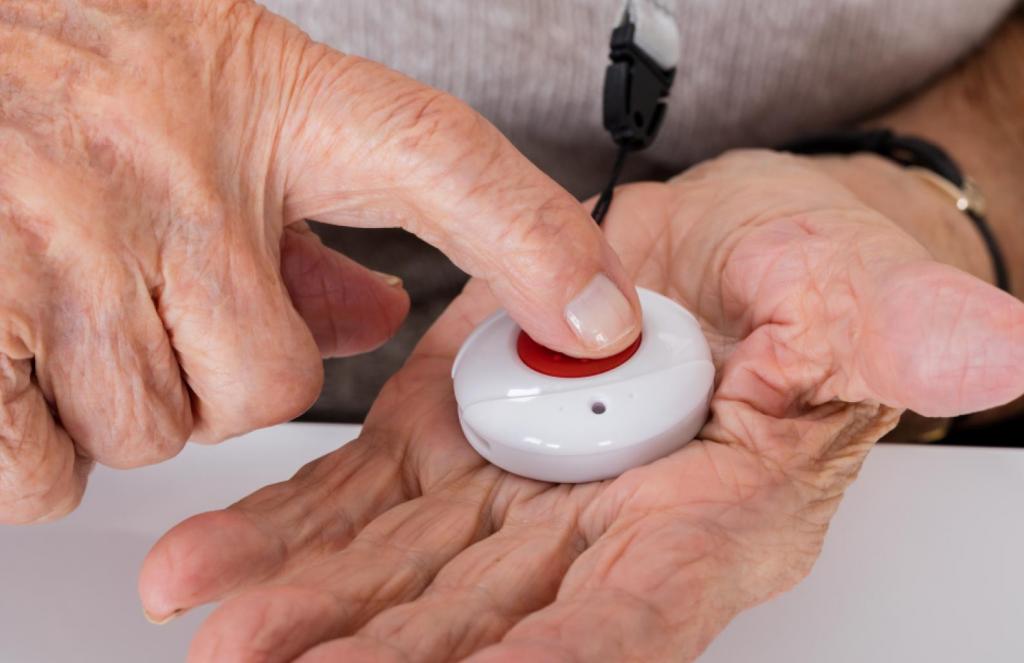Thessaloniki gets ready for its metro launch in November
The underground rapid transit lines have been under construction for almost two decades due to various project delays
 TheMayor.EU logo
TheMayor.EU logo 
These are the red buttons that Madrid seniors are currently using to alert services in case of emergency, Source: Comunidad de Madrid
The new system will watch out for high irregularities in the daily living patterns of the elderly before alerting emergency services
Many stay-at-home seniors in the Madrid Region are already enjoying the red button telecare service provided there, meaning they can click on the portable device in case of emergency and call the relevant professionals for help. However, the regional authorities have decided to upgrade these surfaces even more with the installation of sensors in the elderly residents’ homes, which can study the daily patterns of movement of the residents and alert the relevant services if something is out of the usual.
This system, which is estimated to reach 90,000 dependent people throughout the region, will incorporate the latest advances with the aim of improving the quality of life of its users, ensuring intervention when they have a personal, social or medical need. The innovation will, above all, prolong the service recipients’ stay in their own homes, delaying their entry into nursing residences or day centres for as long as possible.
Among these pieces of equipment there will be mobility detectors that will make it possible to control the activity or inactivity of a person so that if there is no movement inside the home within a predetermined period of time, they will activate an alarm in the care centre.
The same system will use fall detectors or magnetic door sensors, which can be installed both at the entrance of homes and in different appliances (refrigerator, microwave) and activate a radio signal when these doors are not opened within the time configured for each user.
The seniors will also have a home habits detector that, through the measurement of humidity, temperature, light or electricity consumption values, will configure their “life pattern” with their daily routines (sleep, meals, exits and entrances). Unusual activities or deviations from these routines, which can lead to a risk situation, will generate an alert in the control centre.
There will also be telephones with large buttons to facilitate dialling, medication dispensers that notify the user when a dose has been missed, or smoke, fire and gas leak detectors.
"Advanced telecare, which we hope will start operating at the end of next year, is going to be a giant step forward in terms of care for dependency and in promoting the personal autonomy of the elderly in the region," said the regional minister of Family, Youth and Social Policy, Concepción Dancausa.

The underground rapid transit lines have been under construction for almost two decades due to various project delays

Now you can get your wine in Talence by paying directly in Bitcoin

That’s because the state has to spend money on updating the railway infrastructure rather than subsidizing the cost of the popular pass

Rethinking renewable energy sources for the urban landscape

The examples, compiled by Beyond Fossil Fuels, can inform and inspire communities and entrepreneurs that still feel trepidation at the prospect of energy transition

Now you can get your wine in Talence by paying directly in Bitcoin

The 10th European Conference on Sustainable Cities and Towns (ESCT) sets the stage for stronger cooperation between the EU, national and local level to fast track Europe's transition to climate neutrality.

At least, that’s the promise made by the mayor of Paris, Anne Hidalgo

The underground rapid transit lines have been under construction for almost two decades due to various project delays

At least, that’s the promise made by the mayor of Paris, Anne Hidalgo

Hostal de Pinós is located in the geographical centre of the autonomous region

Despite its church-y name, the district has long been known as the hangout spot for the artsy crowds

Urban dwellers across the EU are having a say in making their surroundings friendlier to people and the environment.

Forests in the EU can help green the European construction industry and bolster a continent-wide push for architectural improvements.

Apply by 10 November and do your part for the transformation of European public spaces

An interview with the Mayor of a Polish city that seeks to reinvent itself

An interview with the newly elected ICLEI President and Mayor of Malmö

A conversation with the Mayor of Lisbon about the spirit and dimensions of innovation present in the Portuguese capital














